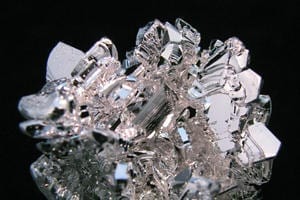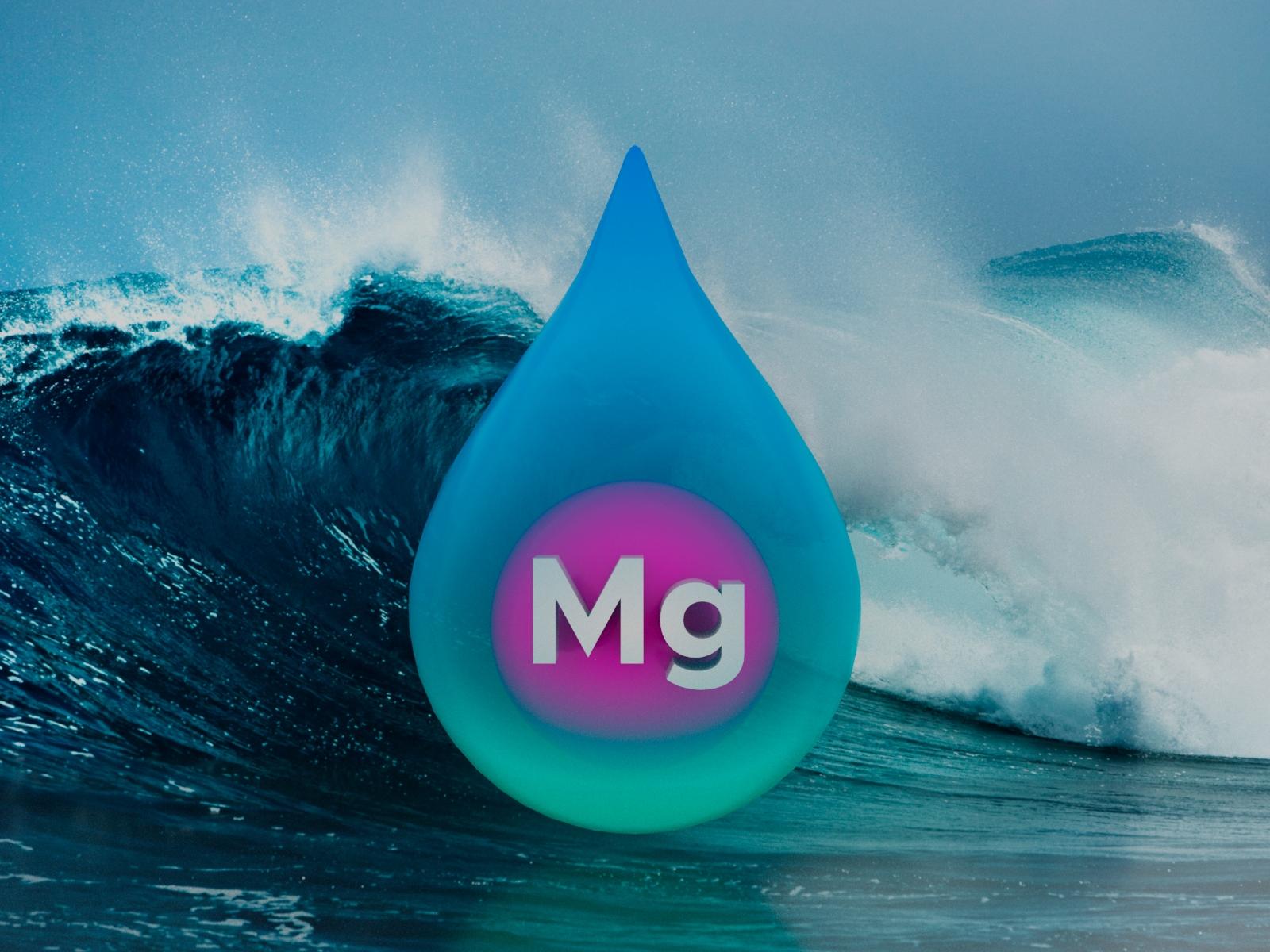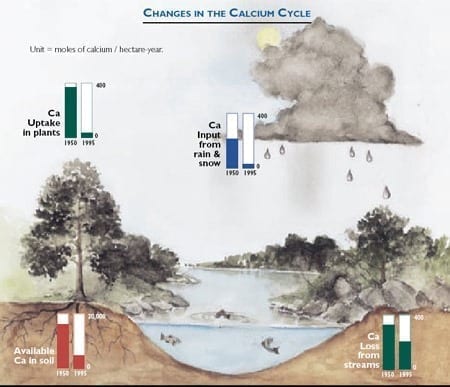
The process could ultimately make fuel-efficient transportation more affordable
A lightweight metal that reduces fuel use in cars and planes could be extracted from the ocean through a unique process being developed at the U.S. Dept. of Energy (DOE)’s Pacific Northwest National Laboratory (PNNL). The process could ultimately make fuel-efficient transportation more affordable and expand the American magnesium market.
PNNL is leading a $2.7 million, three-year project to develop a novel method that removes naturally occurring magnesium from seawater. The project was announced by DOE’s Advanced Research Projects Agency-Energy, also known as ARPA-E.
“Demand for lightweight metals such as magnesium is growing, but it’s expensive and energy-intensive to produce them,” said the project’s lead researcher, PNNL Laboratory Fellow Pete McGrail. “We expect our method will be 50% more energy efficient than the U.S.’ current magnesium production process. This will also decrease carbon emissions and the cost.”
Among the lightest of metals, magnesium is used in alloys that decrease weight and increase strength of key parts used in vehicles, airplanes, power generation equipment, industrial processes and buildings. But magnesium is about seven times more expensive to produce than the steel traditionally used in those applications. Producing lightweight metals also requires a lot of energy, the generation of which creates carbon emissions. A cheaper and more efficient production process is needed to enable the broader use of lightweight metals, leading ARPA-E to announce $32 million in funding today for new projects that will develop new processing and recycling methods.
The U.S. is home to just one bulk magnesium plant in Utah, where brine from the Great Salt Lake region is put through a chemical reaction called electrolysis to extract the metal from a molten salt. About a third of the nation’s magnesium is imported, and China is the world’s largest producer. China uses another method called the Pidgeon process, which requires significantly more energy and creates substantially more carbon emissions than the method used in Utah.
“Reinventing the magnesium production process so it’s more affordable can also help grow the American magnesium market and decrease U.S. reliance on foreign-made materials,” McGrail said.
New catalyst key to energy-efficient conversion
PNNL is developing a new, titanium-based catalyst that regenerates an important chemical used in the magnesium extraction process. The catalyst will enable a more efficient process and use less energy. PNNL’s process will require temperatures of no more than 300 C, which is much lower than the 900 C required by the current U.S. process.
The Latest Bing News on:
Magnesium production
- Magnesium Chloride Market Thrives on Global Deicing Demand: FMI Analysis Projects 4.3% CAGR Growth Until 2031on May 3, 2024 at 9:37 am
The global magnesium chloride market is anticipated to expand at a steady 4.3% CAGR over the forecast period between 2021 and 2031, finds Future Market Insights (FMI) in a recent market analysis.
- Magnesium supplement consumption surges, especially among Young peopleon May 2, 2024 at 7:58 am
Magnesium is one of the body's essential minerals, involved in over 300 different processes, including energy production, bone health, muscle contraction (including the heart), and contributing to ...
- The Best Time to Take Magnesium for Maximum Absorption, According to Dietitianson May 2, 2024 at 4:00 am
Magnesium citrate: Commonly used to support digestive health and relieve constipation, magnesium citrate is one of the most highly absorbable forms of magnesium. It can be taken in the morning or ...
- Can You Have Too Much Magnesium?on April 30, 2024 at 5:00 pm
While rare in a person without certain chronic health conditions, you can overdose on magnesium. Symptoms can include digestive issues and respiratory distress, among others. Magnesium is a ...
- Top 9 Best Magnesium Glycinate Supplements in 2024on April 29, 2024 at 5:00 pm
Magnesium is an essential mineral that plays a critical role in various bodily functions. It is part of over 300 biochemical reactions, including muscle and nerve functions, energy production ...
- When Is the Best Time to Take Magnesium? Experts Explainon April 29, 2024 at 2:40 pm
National Institutes of Health (NIH) Magnesium pumpkin seeds foods "The recommendation is not to exceed 350mg/day in supplement form — that’s considered the safe upper limit." Bottom line: ...
- From lotion to pills – how to get your magnesium fix to improve your healthon April 27, 2024 at 5:27 pm
MAGNESIUM sales are rocketing as more people realise how great it is for your health. The mineral helps with anxiety, muscle function, skin disorders and maintaining a normal heart rhythm and ...
- How to Use Epsom Salt for Plantson April 23, 2024 at 4:43 pm
In large crop-growing or timber-harvesting operations around the world, magnesium deficiencies can occur. As a result, farmers engaged in intensive crop or conifer production may use Epsom salt to ...
- Leading the Charge Against Climate Change: World's Largest Green Olivine Mineral Reserve Cleansing Land, Air, and Wateron April 22, 2024 at 3:03 am
As Sahit Muja envisaged, magnesium holds promise in manufacturing lightweight alloys for transportation, facilitating agricultural fertilizer production, and contributing to fire-resistant ...
- Types Of Magnesium: Health Benefits And Side Effectson April 18, 2024 at 5:38 am
Magnesium is an essential mineral that’s involved in over 300 bodily functions. While many foods offer magnesium, 48% of Americans don’t consume enough through their diet [1] Magnesium.
The Latest Google Headlines on:
Magnesium production
[google_news title=”” keyword=”magnesium production” num_posts=”10″ blurb_length=”0″ show_thumb=”left”]
The Latest Bing News on:
Magnesium from ocean water
- Top 8 Best Liquid Calcium Magnesium Supplements in 2024on April 28, 2024 at 5:00 pm
To enjoy the benefits of the Vital Earth Minerals Cal-Mag Supplement Liquid, simply add one ounce to water ... Magnesium, Vitamin D3, Manganese, Boron, Natural Silica Blend, Sea Vegetation ...
- Top 8 Best Magnesium Supplements for Pregnancy in 2024on April 26, 2024 at 5:00 pm
The mixture may not completely combine in water. We’ve been using ... Highly concentrated topical spray made from pure magnesium chloride flakes from the Dead Sea to restore trace minerals ...
- Critical minerals recovery from electronic wasteon April 24, 2024 at 11:21 am
A nontoxic separation process recovers critical minerals from electronic scrap waste.
- Protest on Cornwall beach against plans to put chemicals in the seaon April 24, 2024 at 3:05 am
Planetary Technologies and South West Water want to carry out a carbon sequestration trial by dropping tonnes of magnesium hydroxide in St Ives Bay ...
- The Age of the Oceanon April 21, 2024 at 5:00 pm
The sodium of the ocean seems to furnish a quantitative datum from which we can reason, whereas calcium, magnesium ... the average composition of river water, combined with Dittmar's analyses ...
- A flash of magnesiumon April 16, 2024 at 11:22 am
Magnesium is commonly found in rocks and sea water as well as living organisms. Paul Knochel relates how this element has also sparked a great deal of interest among chemists. One of the most ...
- Ocean Water Wonders: The Surprising Skin Benefits of the Seaon March 29, 2024 at 3:53 am
Ocean water is much more than just saltwater; it’s a complex solution brimming with magnesium, calcium, sodium, and potassium. These minerals play a crucial role in skin health, offering ...
- Travel Activities That Can Improve Your Healthon February 11, 2024 at 5:55 am
Andersen explains how diving in salt water can improve your health. Scuba diving has a plethora of health benefits. Thanks to the high magnesium levels in saltwater, being in or near the ocean ...
- Is drinking magnesium water a better way to take the supplement? A dietitian explainson January 25, 2024 at 11:28 pm
A dietitian explains the benefits and drawbacks of drinking magnesium water compared to taking the mineral as a supplement. And while it’s entirely possible to get all your magnesium needs ...
The Latest Google Headlines on:
Magnesium from ocean water
[google_news title=”” keyword=”magnesium from ocean water” num_posts=”10″ blurb_length=”0″ show_thumb=”left”]










